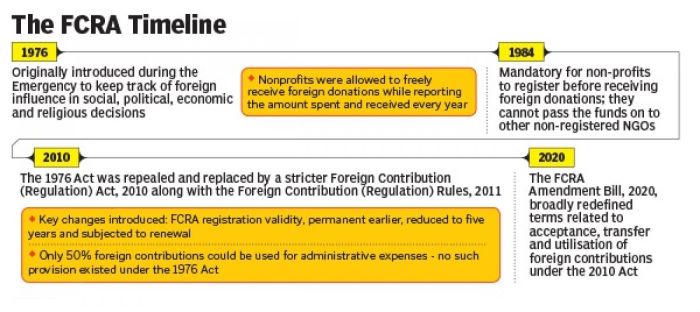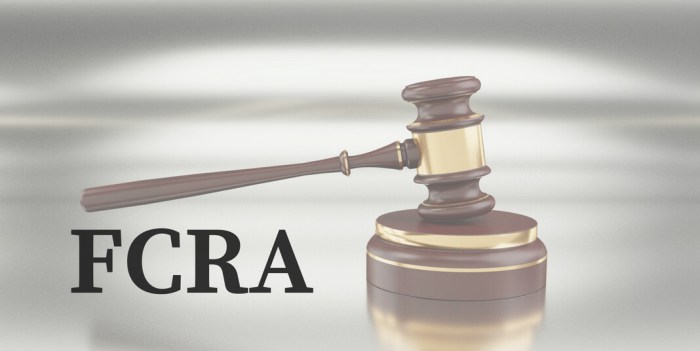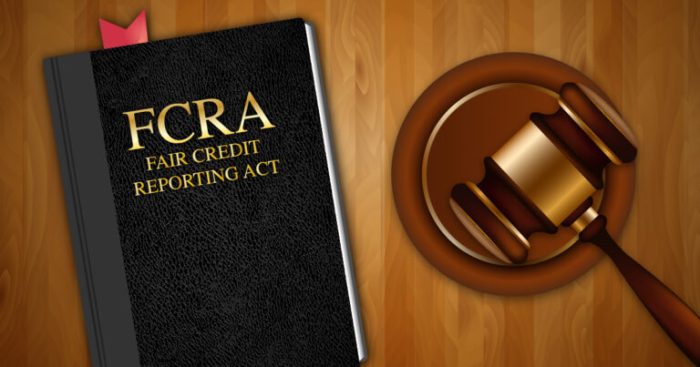Under FCRA non-compliance may result in a series of severe consequences, highlighting the critical need for businesses to adhere to the Fair Credit Reporting Act (FCRA). This comprehensive guide delves into the legal implications, best practices, data security measures, and risk management strategies associated with FCRA compliance, empowering organizations to navigate this complex regulatory landscape effectively.
Failure to comply with FCRA regulations can lead to substantial financial penalties, reputational damage, and even criminal charges. Understanding the potential repercussions is paramount for businesses seeking to protect their operations and maintain consumer trust.
1. Definition of Fcra Non-Compliance
The Fair Credit Reporting Act (FCRA) is a federal law that regulates the collection, use, and disclosure of consumer credit information. Non-compliance with the FCRA occurs when an entity fails to adhere to the requirements Artikeld in the Act.
Examples of non-compliant actions include:
- Failing to obtain proper consent from consumers before obtaining credit reports
- Disclosing credit information to unauthorized parties
- Failing to provide consumers with access to their credit reports
Non-compliance with the FCRA can have serious consequences, including:
- Financial penalties
- Damage to reputation
- Loss of business
2. Legal Implications of Fcra Non-Compliance

Non-compliance with the FCRA can lead to significant legal penalties. The Federal Trade Commission (FTC) is responsible for enforcing the FCRA and can impose fines of up to $2,500 per violation.
In addition to financial penalties, non-compliance with the FCRA can also affect business operations. Companies that are found to be non-compliant may be prohibited from obtaining credit reports or using credit information for business purposes.
Non-compliance with the FCRA can also lead to civil lawsuits. Consumers who have been harmed by non-compliant practices can sue for damages.
3. Best Practices for Fcra Compliance

To ensure compliance with the FCRA, entities should follow a number of best practices, including:
- Obtaining proper consent from consumers before obtaining credit reports
- Disclosing credit information only to authorized parties
- Providing consumers with access to their credit reports
- Maintaining accurate and up-to-date credit records
- Conducting regular audits and reviews of FCRA compliance practices
- Staying up-to-date with regulatory changes
4. Data Security and Fcra Compliance

Data security is an essential component of FCRA compliance. Entities must take steps to protect consumer credit information from unauthorized access, use, or disclosure.
Examples of data security measures that can be implemented include:
- Encrypting consumer credit information
- Limiting access to consumer credit information to authorized personnel
- Implementing firewalls and intrusion detection systems
5. Risk Management for Fcra Compliance
Risk management is an important part of FCRA compliance. Entities should develop a risk management plan that identifies and assesses the risks of non-compliance and implements measures to mitigate those risks.
A risk management plan should include the following elements:
- A risk assessment that identifies and evaluates the risks of non-compliance
- A risk mitigation plan that Artikels the measures that will be taken to mitigate the risks of non-compliance
- A monitoring plan that tracks the effectiveness of the risk mitigation measures
6. Employee Training and Fcra Compliance

Employee training is essential for FCRA compliance. Employees who are responsible for handling consumer credit information must be trained on the requirements of the FCRA.
Training should cover the following topics:
- The requirements of the FCRA
- The consequences of non-compliance
- Best practices for FCRA compliance
FAQs: Under Fcra Non-compliance May Result In
What are the key provisions of the FCRA?
The FCRA establishes guidelines for the collection, use, and disclosure of consumer credit information. It requires businesses to obtain consumers’ consent before accessing their credit reports and limits the circumstances under which credit information can be shared.
What are the penalties for FCRA non-compliance?
Penalties for FCRA non-compliance can include fines of up to $100,000 per violation, imprisonment, and civil lawsuits.
How can businesses ensure FCRA compliance?
Businesses can ensure FCRA compliance by implementing robust data security measures, providing employee training, and regularly auditing their compliance practices.